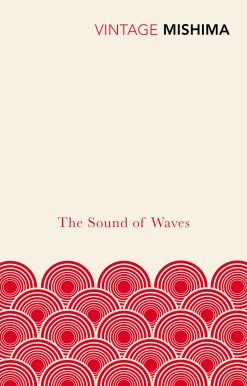No gift registry found click here to create new registry
Cart contain Gift Registry Items cannot add products
The Winter’s Tale
6.00 JOD
Please allow 2 – 5 weeks for delivery of this item
Add to Gift RegistryDescription
The Signet Classics edition of the Shakespeare play that straddles the line between tragedy and comedy.When jealous King Leontes falsely accuses his wife of infidelity, he sets off a chain of events that will explore remorse, love, joy, compassion, and forgiveness.This title in the Signet Classics Shakespeare series includes:• An overview of William Shakespeare’s life, world, and theater• A special introduction to the play by the editor, Frank Kermode• A note on the sources from which Shakespeare derived The Winter’s Tale—a generous selection from Robert Greene’s Pandosto• Dramatic criticism from Simon Forman, Samuel Taylor Coleridge, and others• A stage and screen history of notable actors, directors, and productions of The Winter’s Tale• Text, notes, and commentaries printed in the clearest, most readable format• Recommended readings
Additional information
| Weight | 0.2 kg |
|---|---|
| Dimensions | 1.7 × 10.7 × 17.2 cm |
| PubliCanadation City/Country | USA |
| Author(s) | |
| Format Old` | |
| Language | |
| Pages | 304 |
| Publisher | |
| Year Published | 1998-11-1 |
| Imprint | |
| ISBN 10 | 0451527143 |
| About The Author | William Shakespeare (1564–1616) was a poet, playwright, and actor who is widely regarded as one of the most influential writers in the history of the English language. Often referred to as the Bard of Avon, Shakespeare's vast body of work includes comedic, tragic, and historical plays; poems; and 154 sonnets. His dramatic works have been translated into every major language and are performed more often than those of any other playwright. |
| Table Of Content | The Winter?s Tale – William Shakespeare – Edited by Frank Kermode Simon Forman: ?The Winter?s Tale? at the Globe, 1611, the 15 of MaySamuel Taylor Coleridge; [Comments on ?The Winter?s Tale?]E. M. W. Tillyard: From Shakespeare?s Last PlaysG. Wilson Knight: From The Crown of LifeWolfgang Clemen: From The Development of Shakespeare?s Imagery NEWLY ADDED ESSAYS: Carol Thomas Neely: ?The Winter?s Tale?: Women and IssueSylvan Barnet: ?The Winter?s Tale? on the Stage |
| Excerpt From Book | Chapter OneAct 1 Scene 1 running scene 1Enter Camillo and ArchidamusARCHIDAMUS If you shall chance, Camillo, to visit Bohemia,on the like occasion whereon my services are now on foot, you shall see, as I have said, great difference betwixt our Bohemia and your Sicilia.CAMILLO I think this coming summer the King of Sicilia means to pay Bohemia the visitation which he justly owes him.ARCHIDAMUS Wherein our entertainment shall shame us, we will be justified in our loves, for indeed-CAMILLO Beseech you-ARCHIDAMUS Verily, I speak it in the freedom of my knowledge: we cannot with such magnificence – in so rare – I know not what to say. We will give you sleepy drinks, that your senses, unintelligent of our insufficience, may, though they cannot praise us, as little accuse us.CAMILLO You pay a great deal too dear for what's given freely.ARCHIDAMUS Believe me, I speak as my understanding instructs me and as mine honesty puts it to utterance.CAMILLO Sicilia cannot show himself over-kind to Bohemia. They were trained together in their childhoods and there rooted betwixt them then such an affection which cannot choose but branch now. Since their more mature dignitiesand royal necessities made separation of their society,their encounters, though not personal, have been royally attorneyed with interchange of gifts, letters, loving embassies, that they have seemed to be together, though absent, shook hands, as over a vast, and embraced, as it were, from theends of opposed winds. The heavens continue their loves.ARCHIDAMUS I think there is not in the world either malice or matter to alter it. You have an unspeakable comfort of your young prince Mamillius: it is a gentleman of the greatest promise that ever came into my note.CAMILLO I very well agree with you in the hopes of him: it is a gallant child; one that indeed physics the subject, makes old hearts fresh. They that went on crutches ere he was born desire yet their life to see him a man.ARCHIDAMUS Would they else be content to die?CAMILLO Yes; if there were no other excuse why they should desire to live.ARCHIDAMUS If the king had no son, they would desire to live on crutches till he had one. ExeuntAct 1 Scene 2 running scene 1 continuesEnter Leontes, Hermione, Mamillius, Polixenes, Camillo [andAttendants]POLIXENES Nine changes of the wat'ry star hath beenThe shepherd's note since we have left our throneWithout a burden. Time as long againWould be filled up, my brother, with our thanks.And yet we should, for perpetuity,Go hence in debt: and therefore, like a cipher,Yet standing in rich place, I multiplyWith one 'We thank you' many thousands moeThat go before it.LEONTES Stay your thanks a while,And pay them when you part.POLIXENES Sir, that's tomorrow.I am questioned by my fears of what may chanceOr breed upon our absence, that may blowNo sneaping winds at home, to make us say'This is put forth too truly'. Besides, I have stayedTo tire your royalty.LEONTES We are tougher, brother,Than you can put us to't.POLIXENES No longer stay.LEONTES One sev'nnight longer.POLIXENES Very sooth, tomorrow.LEONTES We'll part the time between's then, and in thatI'll no gainsaying.POLIXENES Press me not, beseech you, so.There is no tongue that moves, none, none i'th'worldSo soon as yours could win me. So it should now,Were there necessity in your request, although'Twere needful I denied it. My affairsDo even drag me homeward, which to hinderWere in your love a whip to me, my stayTo you a charge and trouble. To save both,Farewell, our brother.LEONTES Tongue-tied, our queen? Speak you.HERMIONE I had thought, sir, to have held my peace untilYou had drawn oaths from him not to stay. You, sir,Charge him too coldly. Tell him you are sureAll in Bohemia's well: this satisfactionThe bygone day proclaimed. Say this to him,He's beat from his best ward.LEONTES Well said, Hermione.HERMIONE To tell, he longs to see his son, were strong.But let him say so then, and let him go.But let him swear so, and he shall not stay,We'll thwack him hence with distaffs.-Yet of your royal presence I'll adventure To PolixenesThe borrow of a week. When at BohemiaYou take my lord, I'll give him my commissionTo let him there a month behind the gestPrefixed for's parting.- Yet, good deed, Leontes,I love thee not a jar o'th'clock behindWhat lady she her lord.- You'll stay?POLIXENES No, madam.HERMIONE Nay, but you will?POLIXENES I may not, verily.HERMIONE Verily?You put me off with limber vows. But I,Though you would seek t'unsphere the stars with oaths,Should yet say 'Sir, no going.' Verily,You shall not go; a lady's 'Verily' isAs potent as a lord's. Will you go yet?Force me to keep you as a prisoner,Not like a guest: so you shall pay your feesWhen you depart, and save your thanks. How say you?My prisoner? Or my guest? By your dread 'Verily',One of them you shall be.POLIXENES Your guest, then, madam.To be your prisoner should import offending,Which is for me less easy to commitThan you to punish.HERMIONE Not your jailer, then,But your kind hostess. Come, I'll question youOf my lord's tricks and yours when you were boys.You were pretty lordings then?POLIXENES We were, fair queen,Two lads that thought there was no more behindBut such a day tomorrow as today,And to be boy eternal.HERMIONE Was not my lordThe verier wag o'th'two?POLIXENES We were as twinned lambs that did frisk i'th'sun,And bleat the one at th'other. What we changedWas innocence for innocence. We knew notThe doctrine of ill-doing, nor dreamedThat any did. Had we pursued that life,And our weak spirits ne'er been higher rearedWith stronger blood, we should have answered heavenBoldly 'Not guilty', the imposition clearedHereditary ours.HERMIONE By this we gatherYou have tripped since.POLIXENES O, my most sacred lady,Temptations have since then been born to's. ForIn those unfledged days was my wife a girl;Your precious self had then not crossed the eyesOf my young play-fellow.HERMIONE Grace to boot!Of this make no conclusion, lest you sayYour queen and I are devils. Yet go on.Th'offences we have made you do we'll answer,If you first sinned with us, and that with usYou did continue fault, and that you slipped notWith any but with us.LEONTES Is he won yet?HERMIONE He'll stay, my lord.LEONTES At my request he would not.- Aside?Hermione, my dearest, thou never spok'stTo better purpose.HERMIONE Never?LEONTES Never, but once.HERMIONE What? Have I twice said well? When was't before?I prithee tell me. Cram's with praise, and make'sAs fat as tame things. One good deed dying tonguelessSlaughters a thousand waiting upon that.Our praises are our wages. You may ride'sWith one soft kiss a thousand furlongs ereWith spur we heat an acre. But to th'goal:My last good deed was to entreat his stay:What was my first? It has an elder sister,Or I mistake you – O, would her name were Grace! -But once before I spoke to th'purpose: when?Nay, let me have't: I long.LEONTES Why, that was whenThree crabbèd months had soured themselves to death,Ere I could make thee open thy white handAnd clap thyself my love; then didst thou utter'I am yours for ever.'HERMIONE 'Tis grace indeed.-Why, lo you now, I have spoke to th'purpose twice: To Polixenes?The one forever earned a royal husband;Th'other for some while a friend. Takes Polixenes' handLEONTES Too hot, too hot! AsideTo mingle friendship far is mingling bloods.I have tremor cordis on me: my heart dances,But not for joy, not joy. This entertainmentMay a free face put on, derive a libertyFrom heartiness, from bounty, fertile bosom,And well become the agent. 'T may, I grant.But to be paddling palms and pinching fingers,As now they are, and making practised smiles,As in a looking-glass, and then to sigh, as 'twereThe mort o'th'deer – O, that is entertainmentMy bosom likes not, nor my brows.- Mamillius,Art thou my boy?MAMILLIUS Ay, my good lord.LEONTES I' fecks!Why, that's my bawcock. What? Hast smutched thy nose?-They say it is a copy out of mine.- Come, captain, Aside?We must be neat; not neat, but cleanly, captain.And yet the steer, the heifer and the calfAre all called neat.- Still virginalling AsideUpon his palm?- How now, you wanton calf!Art thou my calf?MAMILLIUS Yes, if you will, my lord.LEONTES Thou want'st a rough pash and the shoots that I haveTo be full like me.- Yet they say we are Aside?Almost as like as eggs; women say so,That will say anything. But were they falseAs o'er-dyed blacks, as wind, as waters, falseAs dice are to be wished by one that fixesNo bourn 'twixt his and mine, yet were it trueTo say this boy were like me.- Come, sir page, To MamilliusLook on me with your welkin eye. Sweet villain!Most dear'st, my collop! Can thy dam, may't beAffection?- Thy intention stabs the centre. Aside?Thou dost make possible things not so held,Communicat'st with dreams – how can this be? -With what's unreal thou coactive art,And fellow'st nothing. Then 'tis very credentThou mayst co-join with something, and thou dost,And that beyond commission, and I find it,And that to the infection of my brainsAnd hard'ning of my brows.POLIXENES What means Sicilia?HERMIONE He something seems unsettled.POLIXENES How, my lord?LEONTES What cheer? How is't with you, best brother?HERMIONE You look as if you held a brow of much distraction.Are you moved, my lord?LEONTES No, in good earnest.-How sometimes nature will betray its folly, Aside?Its tenderness, and make itself a pastimeTo harder bosoms!- Looking on the linesOf my boy's face, methoughts I did recoilTwenty-three years, and saw myself unbreeched,In my green velvet coat; my dagger muzzled,Lest it should bite its master, and so prove,As ornaments oft do, too dangerous.How like, methought, I then was to this kernel,This squash, this gentleman.- Mine honest friend, To MamilliusWill you take eggs for money?MAMILLIUS No, my lord, I'll fight.LEONTES You will? Why, happy man be's dole! My brother,Are you so fond of your young prince as weDo seem to be of ours?POLIXENES If at home, sir,He's all my exercise, my mirth, my matter;Now my sworn friend and then mine enemy;My parasite, my soldier, statesman, all.He makes a July's day short as December,And with his varying childness cures in meThoughts that would thick my blood.LEONTES So stands this squireOfficed with me. We two will walk, my lord,And leave you to your graver steps.- Hermione,How thou lovest us, show in our brother's welcome.Let what is dear in Sicily be cheap.Next to thyself and my young rover, he'sApparent to my heart.HERMIONE If you would seek us,We are yours i'th'garden: shall's attend you there?LEONTES To your own bents dispose you: you'll be found,Be you beneath the sky.- I am angling now, AsideThough you perceive me not how I give line.Go to, go to!How she holds up the neb, the bill to him!And arms her with the boldness of a wifeTo her allowing husband![Exeunt Polixenes, Hermione and Attendants]Gone already?Inch-thick, knee-deep, o'er head and ears a forked one!-Go, play, boy, play. Thy mother plays, and IPlay too, but so disgraced a part, whose issueWill hiss me to my grave. Contempt and clamourWill be my knell. Go play, boy, play.- There have been,Or I am much deceived, cuckolds ere now.And many a man there is, even at this present,Now while I speak this, holds his wife by th'arm,That little thinks she has been sluiced in's absenceAnd his pond fished by his next neighbour, bySir Smile, his neighbour. Nay, there's comfort in'tWhiles other men have gates and those gates opened,As mine, against their will. Should all despairThat have revolted wives, the tenth of mankindWould hang themselves. Physic for't there's none:It is a bawdy planet, that will strikeWhere 'tis predominant; and 'tis powerful, think it,From east, west, north and south. Be it concluded,No barricado for a belly. Know't,It will let in and out the enemyWith bag and baggage. Many thousand on'sHave the disease, and feel't not.- How now, boy?MAMILLIUS I am like you, they say.LEONTES Why that's some comfort. What, Camillo there?CAMILLO Ay, my good lord. Comes forwardLEONTES Go play, Mamillius, thou'rt an honest man.-[Exit Mamillius]Camillo, this great sir will yet stay longer.CAMILLO You had much ado to make his anchor hold:When you cast out, it still came home.LEONTES Didst note it?CAMILLO He would not stay at your petitions, madeHis business more material.LEONTES Didst perceive it?-They're here with me already, whisp'ring, rounding Aside'Sicilia is a so-forth.' 'Tis far goneWhen I shall gust it last.- How came't, Camillo, To CamilloThat he did stay?CAMILLO At the good queen's entreaty.LEONTES At the queen's be't. 'Good' should be pertinent,But so it is, it is not. Was this takenBy any understanding pate but thine?For thy conceit is soaking, will draw inMore than the common blocks. Not noted, is't,But of the finer natures? By some severalsOf head-piece extraordinary? Lower messesPerchance are to this business purblind? Say.CAMILLO Business, my lord? I think most understandBohemia stays here longer.LEONTES Ha?CAMILLO Stays here longer.LEONTES Ay, but why?CAMILLO To satisfy your highness and the entreatiesOf our most gracious mistress.LEONTES Satisfy?Th'entreaties of your mistress? Satisfy?Let that suffice. I have trusted thee, Camillo,With all the nearest things to my heart, as wellMy chamber-councils, wherein, priest-like, thouHast cleansed my bosom, I from thee departedThy penitent reformed. But we have beenDeceived in thy integrity, deceivedIn that which seems so.CAMILLO Be it forbid, my lord!LEONTES To bide upon't, thou art not honest: or,If thou inclin'st that way, thou art a coward,Which hoxes honesty behind, restrainingFrom course required: or else thou must be countedA servant grafted in my serious trustAnd therein negligent: or else a foolThat see'st a game played home, the rich stake drawn,And tak'st it all for jest. |
Only logged in customers who have purchased this product may leave a review.
Related products
-
On backorder 2-5 Weeks to Arrive
Add to Gift Registry9.99 JOD -
On backorder 2-5 Weeks to Arrive
Add to Gift Registry9.99 JOD -
On backorder 2-5 Weeks to Arrive
Add to Gift Registry -
On backorder 2-5 Weeks to Arrive
Add to Gift Registry12.99 JOD





Reviews
There are no reviews yet.